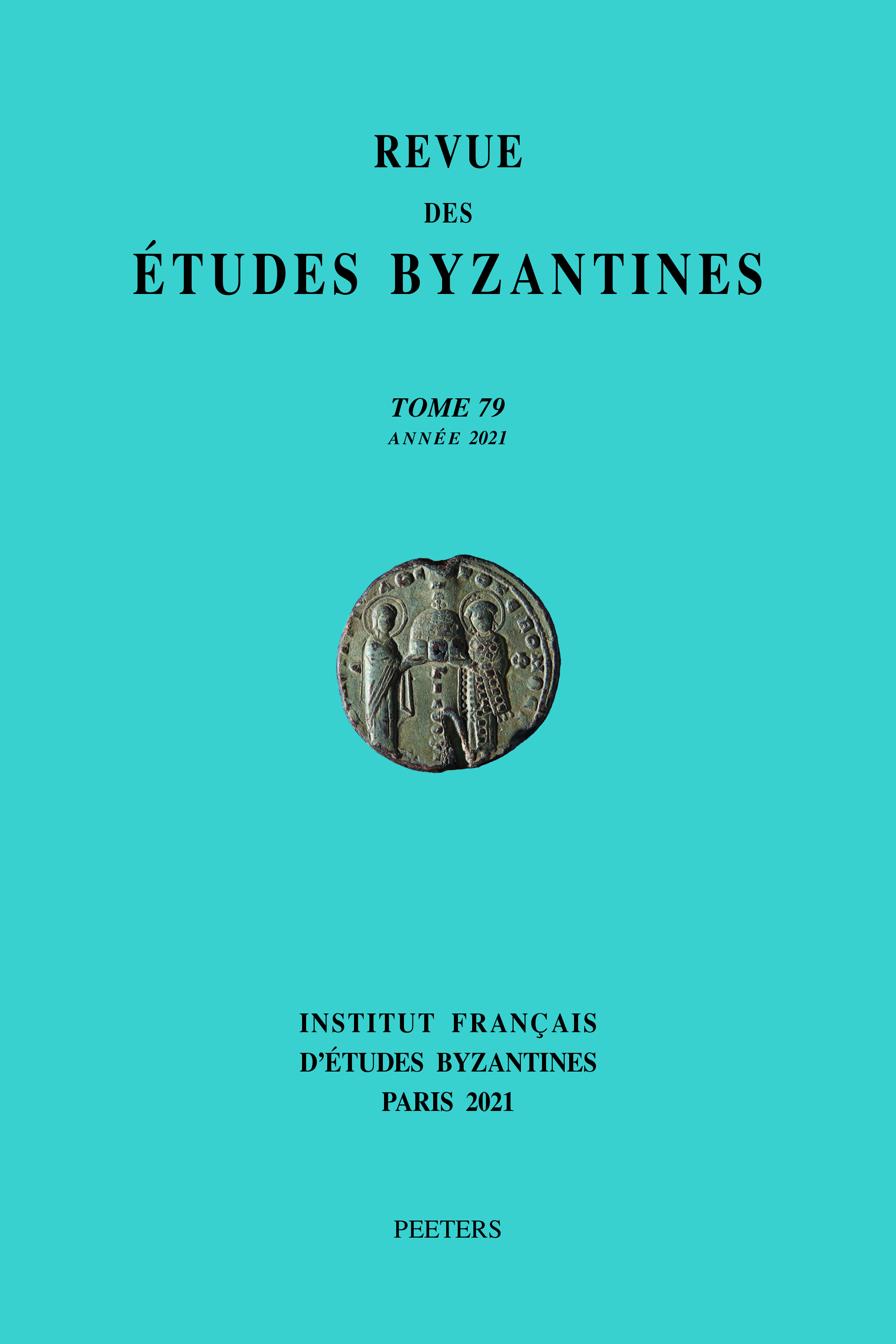 previous article in this issue previous article in this issue | next article in this issue  |

Preview first page |
Document Details : Title: The Landed Property of the Church of Thessalonike (esp. 11th-15th Centuries) Subtitle: A Contribution to the Study of Ecclesiastical Wealth in Byzantium Author(s): CHATZIANTONIOU, Elisabeth Journal: Revue des Études Byzantines Volume: 82 Date: 2024 Pages: 137-180 DOI: 10.2143/REB.82.0.1000004 Abstract : The metropolis of Thessalonike was one of the oldest and most important ecclesiastical sees in the Byzantine Empire, while narrative, epistolary and epigraphic sources indicate that it was quite wealthy throughout the Byzantine period. This paper focuses on the evidence primarily culled from the Athonite archives and presents information relating to landed properties of the metropolis. Our findings and conclusions refer to the types of its landed possessions, their geographical distribution, the preferred ways for their exploitation and their management by diocesan officials and the metropolitan clergy, as well as the archbishop’s involvement in the financial administration. The above-mentioned issues have not been addressed and evaluated in a comprehensive and systematic survey until now. Thus, our paper demonstrates an aspect of the ecclesiastical history and administration of Thessalonike and contributes to the study of the ecclesiastical wealth and management. La métropole de Thessalonique est l’un des sièges ecclésiastiques les plus anciens et les plus importants de l’Empire byzantin, et les sources narratives, épistolaires et épigraphiques indiquent qu’elle était assez riche pendant toute la période byzantine. Cet article se concentre sur les éléments provenant principalement des archives athonites et fournit des données sur les propriétés foncières de la métropole. Nos résultats et conclusions concernent les types de propriétés foncières, leur répartition géographique, les modes d’exploitation choisis et leur gestion par les fonctionnaires diocésains et le clergé métropolitain, ainsi que l’implication de l’archevêque dans l’administration financière. Les questions susmentionnées n’ont pas été abordées de manière critique dans le cadre d’une étude complète et systématique jusqu’à présent. Ainsi, notre article révèle un aspect important de l’histoire et de l’administration ecclésiastique de Thessalonique et contribue à l’étude de la richesse ecclésiastique et de sa gestion. |
|


